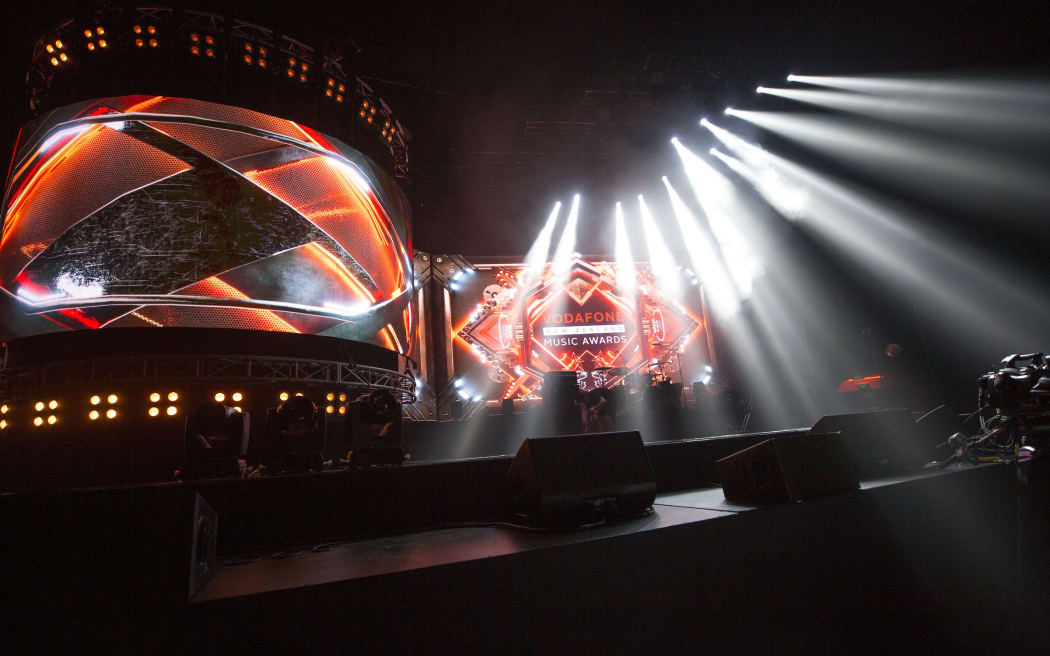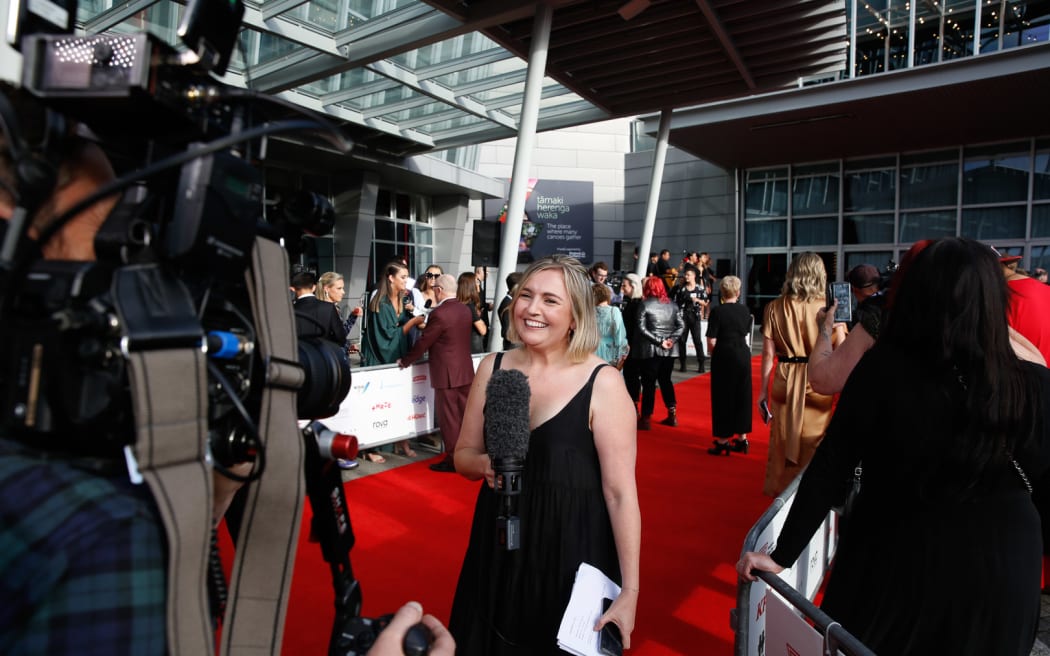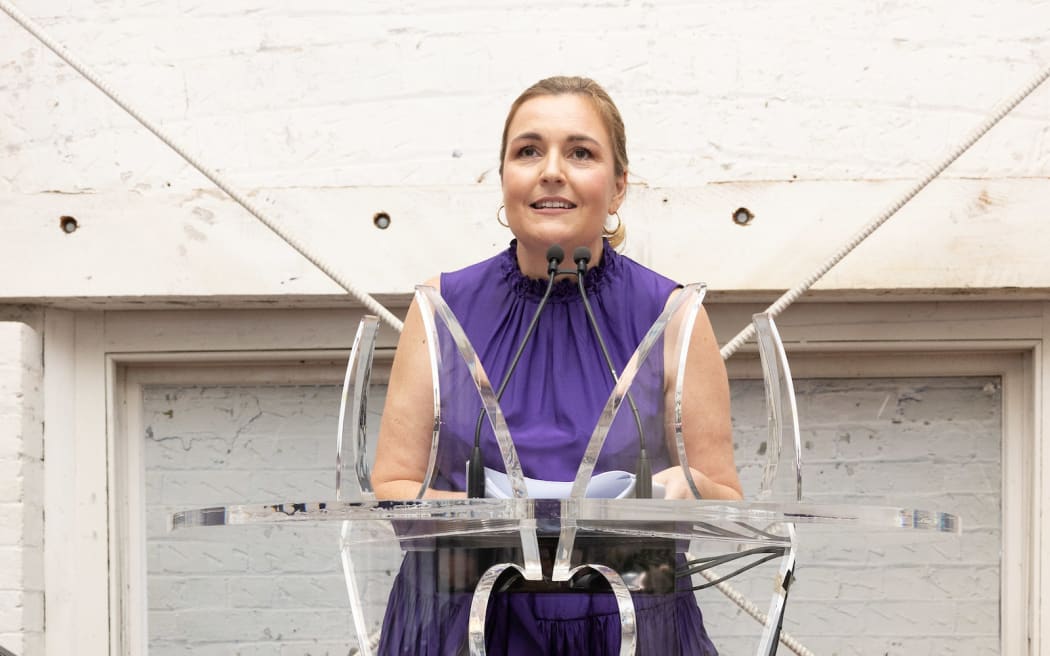[ad_1]
From the biggest party of the year to a fun celebration amongst colleagues, the Aotearoa Music Awards are a bellwether for the changing culture in the local music industry. But is change coming soon?

Vodafone NZ Music Awards 2017, at Spark Arena, Auckland
Image: Topic Photography 2017
The New Zealand Music Awards was the biggest red carpet event in the country. They will pack out the Spark Arena floor. Hosted by famous Kiwi media darlings, with corporate sponsors such as Vodafone and Godfrey Hearst Carpet, the glittering event will run for an hour with winners announced by contestants from the All Blacks and The Block – all broadcast live on primetime, free-to-air. Television
For many in the industry, it was an excuse to get tough.
“You start with pre-drinks, maybe around 3 or 4 [in the afternoon]”, said RNZ’s Music101 host Charlotte Ryan
“Then you go to the awards pre-drinks with the artists… then go to the awards, drink, sit at tables for hours, then the awards after-party, then the after-after-party, and then – you never know.
“It was always the big party of the year. You wanted to talk about it for months.”

Charlotte Ryan on the VNZMA red carpet in 2019
Image: RNZ
The 2022 awards took place last week, and you wouldn’t be blamed for not knowing about it. It was hosted in an Auckland bar – the kind of bar where after-parties were held – with a guest list of under 300, and only three drinks allowed each.
The organizers had many reasons to reassess the event. A tight budget without a corporate naming sponsor, the risk of Covid-19 spreading to half the country’s music industry workforce – but there was also a sea change in the culture New Zealand’s music industry was using. A renewed emphasis on making the industry a safe space for women and gender minorities, free from sexual harassment, abuse and exploitation.
Charlotte Ryan says details Changes have been years in the making.
In 2017, the #MeToo movement exposed sexual harassment in the halls of power around the world. Here for the music industry, the conversation really started when an Instagram account, Under the Glass Ceiling NZ, started posting anonymous complaints about sexual harassment and inappropriate behavior.
Then, in 2019, a report called Amplify Aotearoa was released looking at gender inequality in the music community, with 70 percent of women reporting experiencing gender bias and almost half of women reporting unwanted sexual behavior.
In the wake of the report, the children’s action group Soundcheck Aotearoa was formed by a number of industry organisations, including NZ On Air, the NZ Music Commission, Recorded Music NZ, APRA AMCOS and the Māori Music Industry Coalition. Still in its early days, the group offers industry training on inclusion and safety.
“If anything, I wish it had come earlier,” Ryan said.
“I’ve been working in the music industry since the early 2000s, and I think we’ve always known as women that the deal was — there were often times where I was the only woman and there were forty other men.
“We wanted an organization to stand up and say ‘Stop it’.”
In early 2021, staff senior journalist Alison Mau published her revelations about harassment and exploitation in the New Zealand music industry, including two high-profile executives who conducted inappropriate relationships with clients and other employees. Mou said the article sparked a “flood of corrections”.
“I spoke to many other people during that investigation who did not want to be named,” she says.
“The number of these people talking about loss at music awards is shocking. It’s been an unsafe place for years.”

Charlotte Ryan presents the 2022 Aotearoa Music Awards
Image: Provided by / James Ensing-Trussell
Mou says often when he breaks stories like this, the industry makes grand gestures of restoration where the damage was done, but often nothing happens. As for the new look for the music awards, “it’s a more subtle but perhaps more meaningful indication that change is happening”.
Mau says while many workplaces can be unsafe environments, the music industry is a unique structure.
“Those whose life’s dream is to advance in an industry are truly vulnerable to the behavior and decisions of others.
“In the case of artists, these are people who are gatekeepers – management, labels – who have hung their career hopes on being dominated by top men for a long time. So they’re in a very vulnerable place.
“Working in bars and places where there’s a lot of alcohol flowing and potentially other things…these are places where women and non-binary people have to live otherwise they’re not participating properly in their own career progression. It makes them particularly vulnerable to people of power.
details Also spoke with Catherine Hode, one of the researchers behind the 2019 Amplify Report, about her work at Massey University educating the next generation of the music industry.
Learn how to listen and subscribe details Here.
You can also stay up-to-date by liking or following us on Facebook Twitter.

Image:
[ad_2]
Source link

